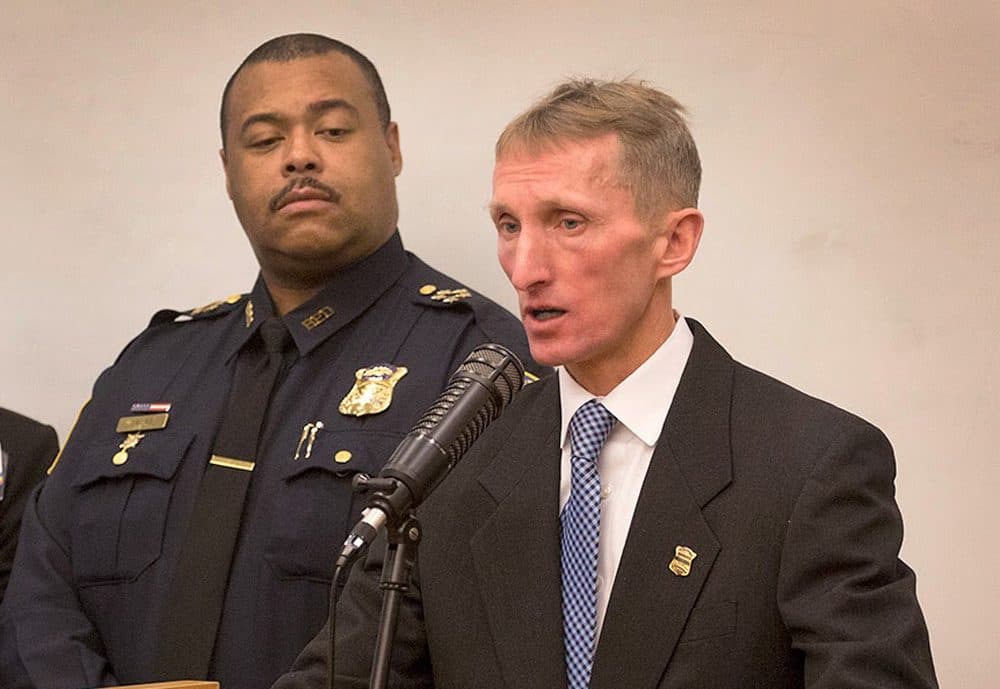Advertisement
Ahead Of Ruling On Pilot Program, Boston Police Commanders Say They Will Wear Body Cameras

Leaders of the Boston Police Department will wear body cameras for the duration of a long-awaited pilot program, Police Commissioner William Evans announced Thursday.
Among those leaders is Superintendent-In-Chief William Gross — the second in command on the Boston police force. Seven other leaders will also wear body cameras. Evans said he asked his command staff to volunteer to wear the cameras to lead by example and show the department's willingness to embrace the technology.
"When I asked members of my command staff to volunteer to wear the cameras, they all stepped up," Evans said in a statement.
The announcement comes just a day before a superior court judge is expected to decide whether to grant a request by the Boston Police Patrolmen's Association to halt a body camera pilot program in Boston. The program was supposed to start at the beginning of the month, but has been held up by the litigation. The union says the city violated an agreement to implement a voluntary pilot program when the police department began assigning body cameras to 100 patrol officers. The city began assigning officers cameras after none volunteered for the pilot program.
The matter was heard in court this week during a two-day hearing. The union said the city didn't give the voluntary program enough time to work and wants to delay the program to re-negotiate its agreement. Evans testified that he didn't want to delay the program further and it's his "lawful authority as the police commissioner to assign [body cameras]." The city says it is ready to begin the program on Monday, if the judge rules in its favor.
In his announcement Thursday, Evans said the eight commanders have duties that may require them to be out in the community, overseeing special events or responding to critical incidents. The commanders will follow the same body camera policy that the patrol officers in the pilot program will follow.
One major caveat, however, is that the commanders will not be officially part of the study group for the pilot program. The six-month pilot program will be studied by Northeastern professor Dr. Anthony Braga, who will analyze police-community interactions, citizen complaints, use of force incidents and community satisfaction, among other metrics.
